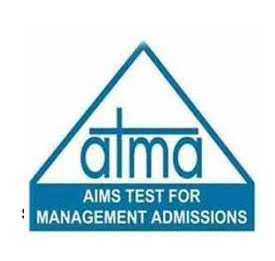A PhD in Agriculture is an intensive research doctoral course that takes a period of 3-6 years. It provides superior education in study fields in agricultural science like agronomy, soil science, plant breeding, agricultural economics, entomology, and horticulture. The program concentrates on innovation, sustainable development, biotechnology, climate-smart agriculture, and policy formulation.
Ph.D Agriculture eligibility criteria are that the candidate must hold a post-graduate degree (M. Sc. in Agriculture or Biotechnology) must have been obtained with a minimum of 55 percent marks, In a recognized university. Entrance exams such as ICAR AICE-JRF/SRF (Ph.D.), CSIR-UGC NET, or university-level exams are usually used in making admissions, to be followed by an interview or review of a research proposal. Certain institutions demand even work or research experience as well.
The average course fee for a Doctor of Philosophy in Agriculture ranges between INR 30,000 – 2,00,000 based on the university and the option. The best research centers are the Indian Agricultural Research Institute (IARI), Tamil Nadu Agricultural University (TNAU), Punjab Agricultural University (PAU), GBPUAT (Pantnagar), and Dr. Rajendra Prasad Central Agricultural University. Ph.D. candidates are normally given scholarships and stipends by government universities.
Employment opportunities after a Ph.D. in Agriculture cover career options in research and development, teaching, agri-business consulting, policy analysis, as well as biotechnology. Occupations are Agricultural Scientist, Research Associate, University Professor, Crop Advisor, and Policy Consultant. Entry-level Ph.D may get about INR 6 – 10 LPA, and even older scholars/professors can get up to INR 15 -20 LPA or even more in foreign institutions/leading research units.
Table of Contents
- Ph.D. in Agriculture Course Highlights
- What is Ph.D. in Agriculture?
- Why Study Ph.D. in Agriculture?
- Who Should Study Ph.D. in Agriculture?
- Ph.D. in Agriculture Eligibility Criteria
- Ph.D. in Agriculture Entrance Exams 2025
- Ph.D. in Agriculture Colleges in India
- Ph.D. in Agriculture Admission Process 2025
- Ph.D. in Agriculture Syllabus
- PhD in Agriculture VS PhD in Soil Science and Agricultural Chemistry
- Ph.D. in Agriculture Career Opportunities
- Ph.D. in Agriculture FAQs
Ph.D. in Agriculture Course Highlights
Given below are the basic key highlights for the Ph.D. in Agriculture:
What is Ph.D. in Agriculture?
Ph.D. in Agriculture is a 3 to 6-year doctoral-level program in research that aims at studying and researching at a higher level in the field of agriculture and allied sciences. It targets postgraduates and other interested people who would want to explore further in the field of agricultural innovations, sustainability, crop science, agronomy, and policy development.
The program is also intensive research, writing a thesis, and teaching, in some cases. Candidates are taught skills in research methodologies and scientific writing, and knowledge in fields such as plant breeding, soil science, biotechnology, agricultural economics, and climate resilient agriculture. The technology promotes creativity and analytical research work to solve problems in the field of agriculture and to enhance agricultural productivity; therefore, it may be suitable in careers such as academic research and development, government policy-making,and agribusiness leadership.
Why Study Ph.D. in Agriculture?
The agricultural sector is the foundation pillar of our economy and one that boasts of a lot of scientific, economic, as well as ecological significance. Getting a Ph.D. in Agriculture is not just another academic degree; it is an investment in tomorrow and in creating sustainability and innovation. Indeed, the pursuit of a Doctor of Philosophy in Agriculture is very fulfilling in terms of academia and career fulfillment:
- You conduct first-rate research that leads to impact in the real world: If you can envisage food security by increasing crop productivity or creating climate-proof agricultural practices, your research work could really be making a difference to the farmer, the food system, and environmental sustainability.
- It improves your scientific mindset and problem-solving abilities: As a doctoral student, you will develop professional knowledge in a specific field, which may be agronomy, soil science, plant genetics, agricultural biotechnology, and policy analysis.
- You work in policy, education, and innovation: a large number of our Ph.D Agriculture alumni are advisors to policymakers, university professors, or heads of R&D in agritech companies, and are instrumental in transforming the future of agriculture.
- You contribute to solving worldwide problems: Climate change, population increase, and the shortage of resources come as agricultural problems as well. You will be a leader in discovering solutions to the issue of feeding the world with this degree.
Who Should Study Ph.D. in Agriculture?
The following are the categories of candidates who would be suitable to undertake a Ph.D. in Agriculture:
- M.Sc. in Agriculture or equivalent (also related to fields) and passionate about scientific research, innovation, and sustainable agricultural development, with a passion to gain experience in the postgraduate society.
- Those with ambitions of becoming subject matter experts in agronomy, plant breeding, soil science, biotechnology, or related fields through intense scholarly research.
- Candidates who want a professorship or work in an agricultural research center and government policy-setting apparatus where a vendor with an educational degree is necessary.
- Inspired scholars are ready to work towards solving real-world agricultural problems, including climate change, food security, and soil erosion, using scientific research.
- Individuals who want to work with international organizations, NGOs, or with agritech companies that work on sustainable agriculture or rural development or food systems innovation.
- Individuals who are determined to benefit the rural communities, increase crop yields, or develop agricultural methods through advanced scientific knowledge and policy formulation.
Ph.D. in Agriculture Eligibility Criteria
Eligibility requirements for a Ph.D in Agriculture are as identified below. Nevertheless, they can be different according to the university or the institute:
- The candidate must have a postgraduate degree (M.Sc. in Agriculture or any related field) from a renowned university or institute.
- Aggregate of at least 55% marks (or as equivalent CGPA) in the qualifying master's degree. As per UGC, a concession of cumulatively 5% could be allowed to SC/ST/OBC/PwD candidates.
- The applicants should have pursued a course in studies such as Agronomy, Soil Science, Horticulture, Plant Breeding, or related agricultural sciences at the postgraduate level.
- Depending on the type of institute, the applicants may have to first qualify at the national level in one of the entrance examinations like ICAR-AICE-JRF/SRF (Ph.D.), CSIR-UGC NET, or other equivalent, and then at the institute level through an interview or a presentation of a research proposal.
Ph.D. in Agriculture Entrance Exams 2025
Entry into a Ph.D Agriculture is normally entrance-based, with interviews and reviews of a research proposal.
Ph.D. in Agriculture Colleges in India
Provided below is the list of some of the Top Ph.D. Agriculture Colleges in India. Students must be eligible to pursue a Ph.D Agriculture from these colleges:
Ph.D. in Agriculture Admission Process 2025
Ph.D. in Agriculture is done through entrance exams such as ICAR AICE-JRF/SRF, CSIR-UGC NET or university based Ph.D. entrance examination and after which there is an interview. The following is the process of admission in the Indian Agricultural Research Institute (IARI), New Delhi:
Step 1: Log onto the official IARI site and search for Ph.D. notification on the admissions section under Education. Fill the online application form of ICAR AICE-JRF/SRF (Ph.D.).
Step 2: Take up the ICAR AICE-JRF/SRF exam, administered by NTA (National Testing Agency). Core subject knowledge, general knowledge and the ability to reason are tested in the exam.
Step 3: Shortlisting of candidates will be done on the basis of the exam scores and eligibility standards,a nd they will be invited to the personal interview at IARI.
Step 4: There is a final merit list that is prepared according to entrance score (80 %) and performance in the interview (20%). In the event that the candidate is chosen, he/she is supposed to complete admission procedures by paying the first semester fee.
Step 5: Get an admission offer letter. Report to the institute and verify the documents on the stipulated date and provide orientation.
Required Documents:
- Postgraduate Degree Certificate (M.Sc. Agriculture or similar)
- Homestead Bachelor's Degree Certificate
- Mark sheets of PG and UG programs
- Certificate of transfer and Character.
- ICAR Score Card (wherever applicable)
- Caste/Category Certificate (In case-to-case)
- Aadhaar Card or a valid ID proof
- Passport-size photographs
- Migration Certificate (if applicable)
Ph.D. in Agriculture Syllabus
Doctor of Philosophy in Agriculture comes in 6 semesters spanning at least 3 years, and it is mainly research-oriented and supported by coursework. Given below is the ICAR recognized AU Jodhpur Syllabus for your reference.
PhD in Agriculture VS PhD in Soil Science and Agricultural Chemistry
Mentioned below is the comparison between PhD Agriculture and PhD Soil Science and Agricultural Chemistry:
Ph.D. in Agriculture Career Opportunities
After completing the Ph.d. in Agriculture program, students can pursue various Job Profiles. Given below are some of the famous Job Roles you can pursue after completing the course. Along with the top recruiters and Average Pay.
Ph.D. in Agriculture FAQs
Does a Ph.D Agriculture help in gaining positions in the area of policy, research, and government?
Absolutely. Ph.D. in Agriculture gives an opportunity for high-level positions in agricultural policy formulation, ICAR, agricultural universities, international research provisions, and government advisory committees. It will empower students to be experts in the subject matter, capable of providing national food security, rural development, and climate-resistant farming practices.
Is there field work and practical exposure with a Ph.D in Agriculture?
Yes, the students of Ph.D. are supposed to perform field-based work and experiments in the laboratory, as well as data analysis using their selected major (e.g., Agronomy, Soil Science, Plant Pathology). Depending on the topic of his/her thesis, many research scholars may talk to farmers on one hand, and to the local agriculture officers or even NGOs on the other. Publication and thesis defence require practical exposure by way of field trials, participatory rural appraisals (PRA), and Krishi Vigyan Kendras (KVKs).
Can I do a PhD after a B.Sc. in agriculture in India?
Yes, you can pursue a PhD after completing a B.Sc. in Agriculture in India, but typically you need to first complete a master's degree (M.Sc. in Agriculture or a related field) with at least 50-55% marks from a recognized university. Admission to PhD programs usually requires clearing an entrance exam like UGC NET, ICAR NET, or a university-specific test, followed by an interview. There is generally no upper age limit, and some reservations and relaxations apply for reserved categories.
What are the Career or graduate school opportunities beyond a Ph.D Agriculture?
After the Ph.D., a candidate will be able to take up a role of an Assistant Professor, or a Senior Scientist, or an Agricultural Economist, or an AgriTech consultant, or a Government Officer. International research-minded individuals will have an opportunity to apply to postdoctoral positions in other countries. Others advance to policy-making, agribusiness strategy or to working with rural development NGOs. Others end up taking Agri-Business or Rural Management executive programs and then end up taking up leadership positions in MNCs and think tanks.
What are the ways the Ph.D. program ensures that the students are ready to publish and present their research in the international world?
Ph.D. coursework encompasses research methodology, statistical methods, scientific writing, and publication ethics. The scholars have been encouraged to publish in the UGC-CARE, Scopus, and peer-reviewed journals. Giving national and international talks, participating in thesis-writing workshops, and working with inter-disciplinary research also serve to build academic visibility at venues and open the gates to possible postdoctoral or teaching positions anywhere in the world.
Are students with M.Sc. in allied sciences eligible to pursue a Ph.D Agriculture?
Yes, you could be eligible to pursue or apply to a Ph.d in Agriculture as well with a master's degree in any of the fields like Horticulture, Forestry, Environmental Science, Botany or Life Sciences, especially by opting for specializations in the same area. Universities, however, might demand that students pass with entrance tests like ICAR AICE-JRF/SRF or the Ph.D. entrance tests of the institutes. It normally requires a research proposal in the interest of the agriculture sector.











